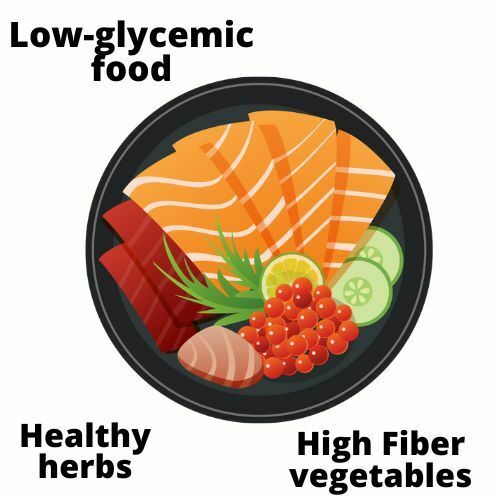Hypothyroid calorie calculator
Calorie counts can be crucial on hypothyroid diet, as Low-calorie diet hypothyroidism can have a great synergistic effect when combined with medication. So, let’s learn how to calculate calories and basal metabolic rate and know how does hypothyroidism affects metabolism.
Check out our latest posts:
- Ottermode Body Type: The Non-Genetic Athletic Look
- Low Cortisol Diet Meal Plan: How To Lower Your Cortisol Levels
- Real Food Diet List: 7 Days Meal Plan
- 1 Week Beginner Galveston Diet Meal Plan: For Menopause Slow Metabolism
- Victoria Secret Model Diet and Workout Plan PDF: Your Guide to a Supermodel’s Fitness Routine
Hypothyroid Calorie Calculator
For most people suffering from hypothyroidism, treatment alone does not seem to solve weight issues. On the other hand, foods alone will not treat hypothyroidism. However, the right mix of medications and nutrition can solve the problem.
Luckily, the thyroid dieting is an easy-to-understand method.
Also, it provides you an alternative way to treat unpleasant symptoms. Fortunately, some noticed improvements in their symptoms by following a low-calorie diet.
So, you may calculate the calories you need daily and cut out excessive calories. However, remember not to go on an extremely low-calorie diet the way that your body can’t get enough calories it need. By doing so, you may fall into a starvation mood that will urge you to overeat after that.
Also, check out how many calories you need daily:
What is Hypothyroidism?
Hypothyroidism is a condition in which the body does not make an adequate quantity of thyroid hormone.
- In fact, thyroid hormones control growth, cell repair, and metabolic process.
- Hypothyroidism symptoms may range from lethal to no symptoms.
- Sadly, it affects 1- 2% of individuals worldwide and is ten times likely to affect women.
- Surprisingly, hypothyroidism makes the body save every calorie, even after a rigorous diet and workouts.
We can conclude hypothyroidism symptoms;
- Tiredness and fatigue.
- Muscle and joint discomforts and pains.
- Excessive hair loss than normal.
- Feeling cold more than normal.
- Mood swings & depression.
- unexpected weight gain, regardless of diet and exercise.
However, if you have hypothyroidism, you can treat it with hormone replacement medication as directed by your doctor — normally on an empty stomach.
Hypothyroidism drugs-food interactions
Surprisingly, dietary fiber can hinder the absorption of thyroid hormone medication. Certain foods, supplements, and medications can have the same impact.
Optimal treatment does not assist weight loss to pester for many thyroid patients.
Prevent taking your thyroid hormone at the exact same time as:
- Walnut, soybean flour, cottonseed meal.
- Iron supplements or multivitamins, including iron, calcium supplements.
- Antacids that include aluminum, magnesium or calcium and ulcer medications like sucralfate (Carafate).
- Cholesterol-lowering drugs, Like cholestyramine (Prevalite) and colestipol (Colestid).
However, to avoid that interaction, separate taking food and hormone by a couple of hours.

How to lose weight in hypothyroid?
In fact, the thyroid hormone increases your metabolism rate, and the faster your metabolism, the more calories your body burns at rest.
Since hypothyroid patients make less thyroid hormone, then their metabolism is slower than normal, you can consider the following a hypothyroid BMR calculator.
BMR for hypothyroid:
Check your basal metabolic rate here:
Then, hypothyroidism might leave you tired, increase your blood cholesterol levels, and make it harder to reduce weight.
How to lose 20 pounds with hypothyroidism;
Follow:
- Low-glycemic food, and high-fiber vegetables.
- Lower-calorie diet.
- Optimal timing of meals for optimum hormonal effect.
- Avoiding thyroid-damaging foods too.
- Consuming useful herbs and supplements.
However, a well-balanced diet makes taking additional iodine unnecessary, as too much iodine can cause hyperthyroidism.
Also, soy in extensive amounts might affect thyroid hormone production.
Related; I Have Hypothyroidism and Can’t Lose weight
Hypothyroid and exercise;
Firstly, some feel it is hard to maintain their weight with hypothyroidism.
However, moderate or high-intensity cardio can help. These exercises are like fast-paced walking, running, hiking, and rowing.
In fact, researches show that moderate to high-intensity aerobic exercise increases thyroid levels, so it speeds up metabolism.
Also, patients may benefit from high protein consumption, as protein diets speed up metabolism.
Calorie intake for hypothyroidism
Long durations of low-calorie diets have been linked to thyroid dysfunction and elevated cortisol levels, according to research. According to one study, women who reduced their diets to 1200 kcal per day had significantly higher cortisol levels.
High cortisol levels in the body can cause a variety of symptoms, including:
- Weight gain.
- Extreme exhaustion.
- High blood pressure.
So, extremely low-calorie diet >>> Raise cortisol >>> Cause weight gain
Another research found that states of chronic starvation, such as prolonged periods of extremely low-calorie diets, are linked to lower levels of total and free T4 and T3, thyroid hormones.
Hypothyroidism is characterised by decreased T3 and T4 levels. Low-calorie diets are thought to have a deleterious effect on thyroid function and may cause hypothyroidism based on these research.
A low-calorie diet for a lengthy period of time might be harmful to your health. Long-term calorie restriction can slow your metabolism, raise your cortisol levels, and cause thyroid hypoactivity. Your body will need time to rebuild its metabolism when this occurs, and it will need to learn to trust that you will feed it before you can lose weight. This is achieved by reverse dieting, which is best done under the supervision of a certified dietitian.

